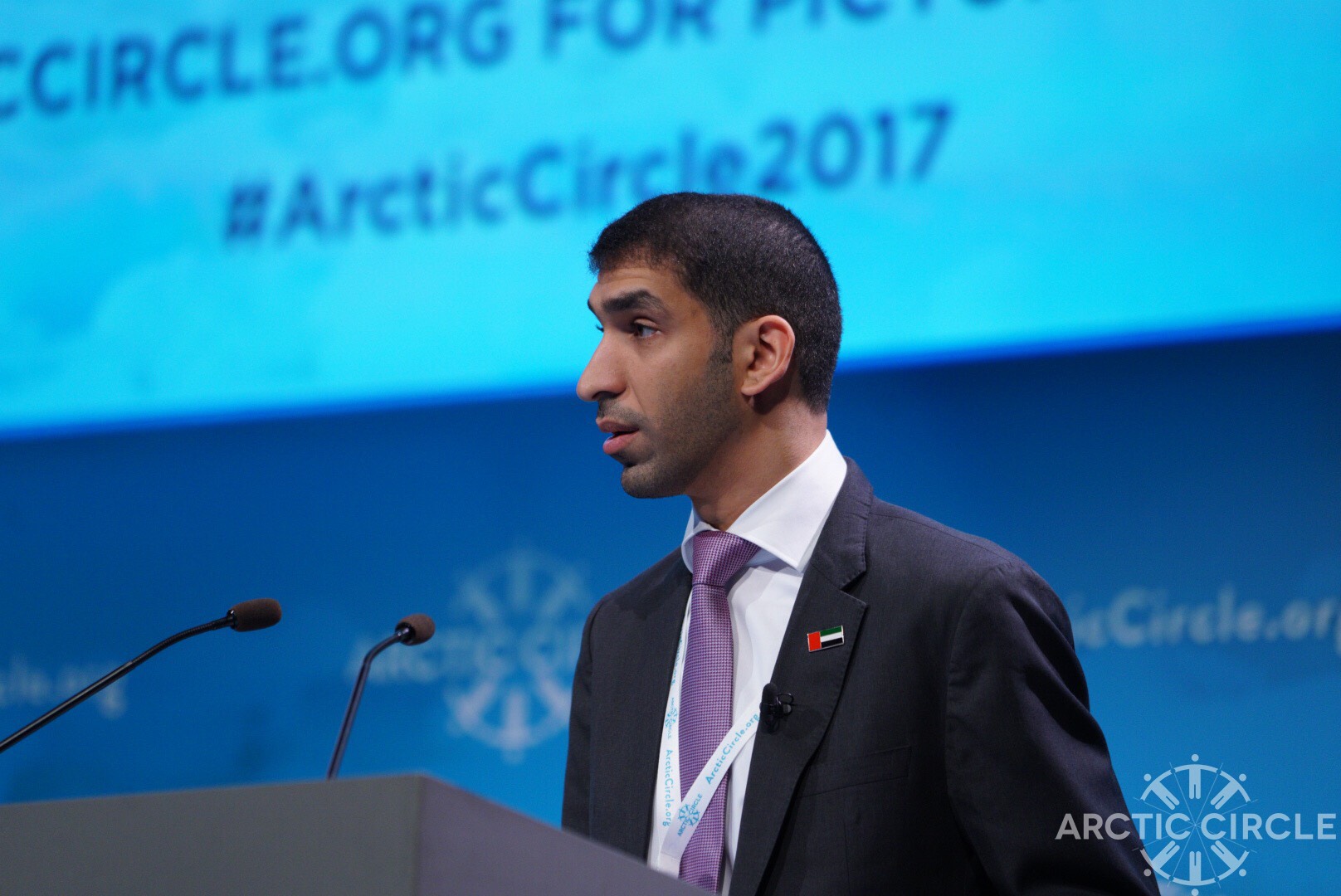A lonely Arab at the Arctic Circle Assembly
OPINION: The Arab world and the Arctic have much to offer one another.

In attending the fifth annual Arctic Circle Assembly in Reykjavik, Iceland, I was struck at how far-reaching this one conference has become. Addressing issues as wide-ranging as indigenous rights, energy, circumpolar health and tourism, the assembly went far beyond what I had expected would be a singular focus on climate change and its effects on the Arctic. To be sure, sea ice melt featured, but more as a fait accompli than a future phenomenon to be questioned. Participants and attendees acknowledged the reality and challenges posed by climate change, but were also aware of — and well into planning for — the plethora of opportunities that the Arctic offers.
In short, the assembly felt nothing short of an Arctic coming out party — and a well-attended one at that! While I was there as part of a 15-strong delegation from the Harvard Kennedy School of Government, we were only one of many universities in attendance from across the world, and the size of our delegation paled in comparison with others. Governments, community representatives, NGOs, IGOs and businesses rounded up the attendees. In all, more than 2,000 people from 50 countries had made the trek to Reykjavik to be part of the assembly, including from countries as far from the Arctic as Brazil, South Africa and Australia.
In the hustle and bustle of the three-day conference, attendees packed sessions but I found myself constantly checking attendee name tags to try and spot just one other Arab name! Hard as I tried, I failed to meet even one other Arab at the Assembly. This is not to say that absolutely none were in attendance; a high-level official delegation from the United Arab Emirates was on hand to accompany Adnan Amin, the Emirati Director-General of the International Renewable Energy Agency based in Abu-Dhabi. But one delegation cannot be called a strong Arab attendance, especially when one considers that nearly half a billion people now live in the Arab world.
Why should Arabs and people of the Arctic be interested in each other’s affairs, you may ask? Apart from the fact that both our populations have learned to live with and tame two temperature extremes, I would argue that there are multiple areas in which Arabs and people of the Arctic can cooperate.
For one, with Arctic drilling a reality, Arabs have a lot to teach when it comes to managing energy income. Arab countries still hold more proven oil reserves than any other region in the world, comprising more than 43 percent of the world’s total proven reserves, and today produce nearly a third of the world’s oil supply. Being some of the world’s only rentier states, Arabs can relay lesson on what to do — and not do — with oil income to avoid the infamous recourse course.
In fact, some think that the reason the world woke up to the Arctic oil potential began with actions thousands of miles away in the Arab world! This is because it was in the wake of the Arab oil embargo of the 1970s that northern European states started to seriously consider drilling for oil in the Arctic to make up for the shortage. And by November 1973, just one month after the embargo was put in place, Norway had announced its intention to start drilling for oil.
On the other hand, with only 4 million inhabitants living in an area nearly twice the size of the United States, increased Arctic opportunities will require more labor. This is where the Arctic can be part of the solution to the Middle East refugee crises. Programs that enable Syrian and other Middle Eastern refugees to at least obtain temporary work permits in the Arctic can allow these refugees to be seen as human capital, rather than a drain on national resources. In turn, their remittances can go a long way in helping their families back home, and in the eventual reconstruction of war-torn countries.
In a closed session between Iceland President Guðni Th. Jóhannesson and the Kennedy School delegation, Jóhannesson unequivocally said that “Iceland can and should help with the refugee crisis. We have practically no unemployment and need foreign workers [here].”
With drilling, ecotourism, and the exponential growth in economic activity of all kinds in the Arctic, Iceland will soon not be alone in needing more workers — and the Arab world is more than capable of supplying these migrants.
These are just two possible areas of cooperation between the Arctic and the Arab world.
Now I can only hope that when I attend the sixth annual Arctic Circle Assembly in October this year I won’t again feel like a lonely Arab!
Ziad Reslan is an attorney and a graduate student of Public Policy at the Harvard Kennedy School of Government.

The views expressed here are the writer’s and are not necessarily endorsed by Arctic Today, which welcomes a broad range of viewpoints. To submit a piece for consideration, email commentary (at) arctictoday.com.